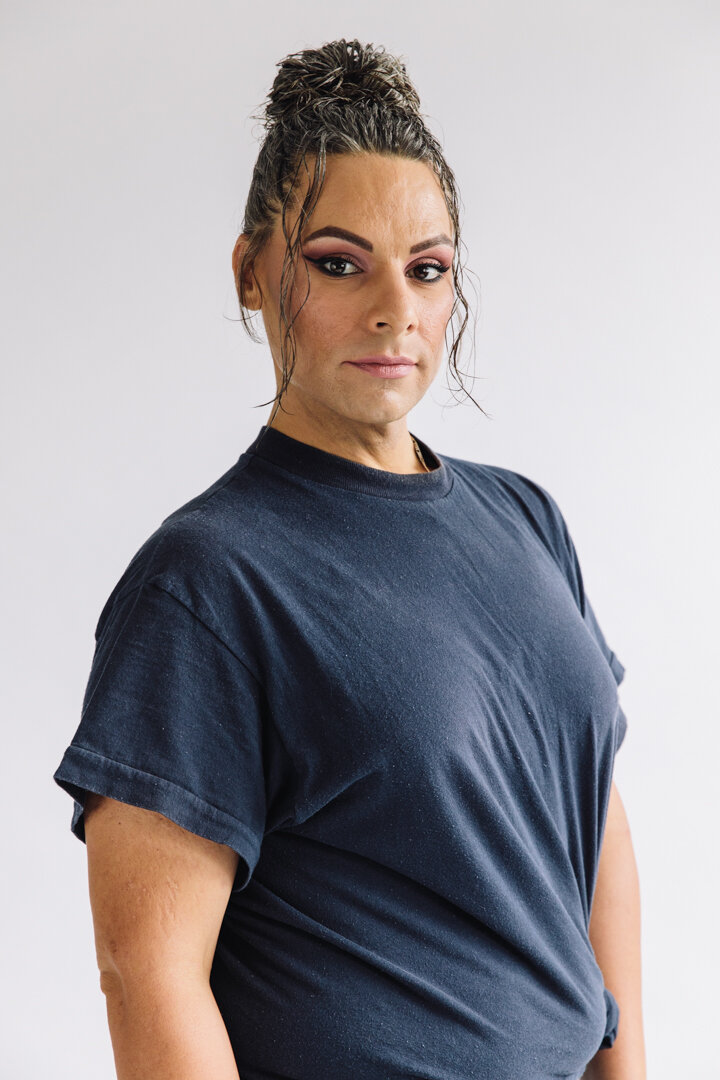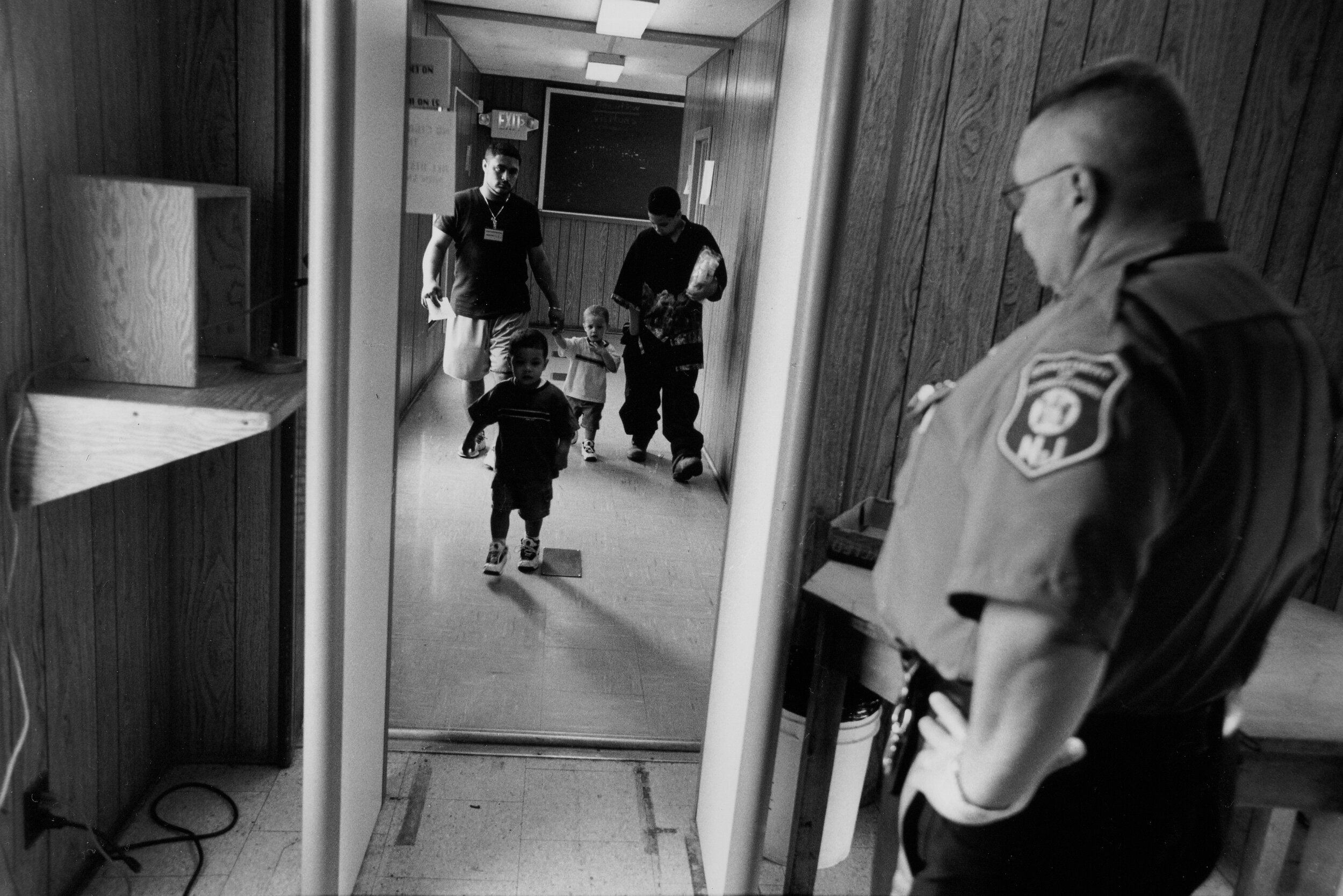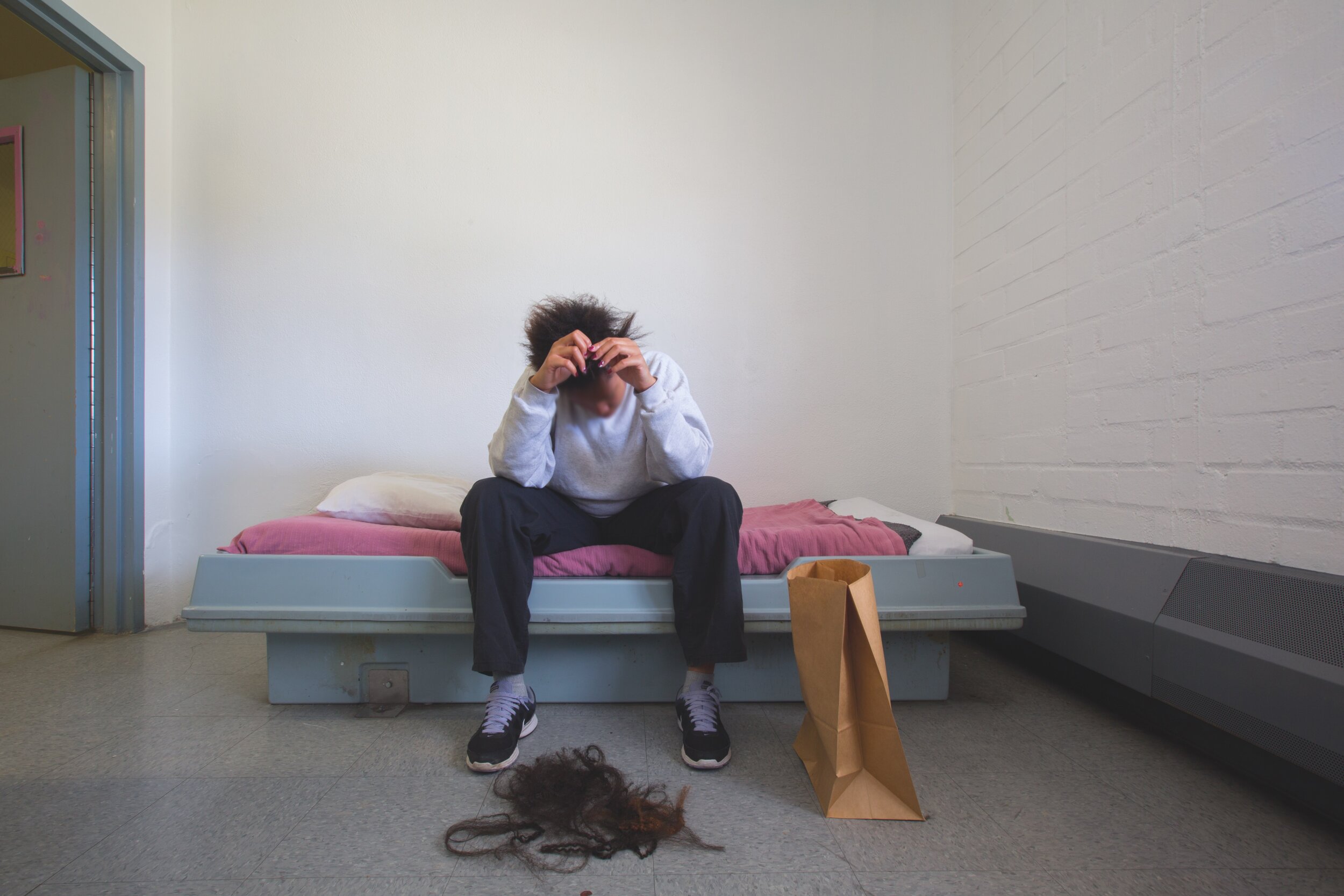Protesters facing off against police in New York on Saturday. Jordan Gale | The New York Times
WHY DO WE HAVE POLICE?
By Anoop Mirpuri
Everywhere we look, there are signs that policing is facing a crisis of legitimacy. Our social media newsfeeds are filled with videos of police killing unarmed civilians. National news outlets report that another grand jury has chosen not to indict the officer that pulled the trigger. Members of the local news media eagerly shadow protests against police violence and, increasingly, the very idea and practice of policing itself.
As a result, more Americans today are questioning the validity of policing practices that have long been taken for granted. Segments of the populace, for years content to look the other way when communities of color demanded justice, are finally acknowledging that there might be a real problem. People who have been quick to call the police for anything from a suspicious lurker to a loud party next door are now beginning to call for police reform. All of a sudden, what seemed unthinkable even a decade ago is now beginning to happen: ordinary people everywhere are entertaining the possibility of defunding and even abolishing the police.
In some communities, however, the legitimacy of the police has always been in question. Everyday police harassment, brutality, surveillance, and impunity are far from new realities among Black, Latinx, and immigrant communities, especially among the working and workless poor. The fact that this crisis has reached new levels of public consciousness today has less to do with a recent increase in police violence than it does with the proliferation of smartphone technology, widespread frustration over increasing economic inequality, and a visceral disconnect between self-congratulatory claims about America’s racial progress and the everyday lived reality of poor people and people of color. Perhaps more than anything, the crisis of legitimacy has been provoked by the tireless work of everyday people over the last several decades committed to organizing against the U.S. carceral state and what has come to be known as the prison-industrial complex.
“We need to rethink our common-sense assumptions about what the police are for”
Americans tend to be uncomfortable with political debates that don’t result in a single rational policy prescription. But police violence isn’t a problem for which you can find the “right” solution. This is because race and class stratification results in different communities having radically different relationships to the police. One person’s solution may be another person’s problem—or a warrant for their arrest. Policing necessarily looks different to a property owner than to someone whose public presence is seen as a nuisance. Likewise, it looks different for anti-racist activists on college campuses than it does for people from poor and working class communities, for whom prison is a more likely destination than a college classroom. Consequently, we need to question the specific class perspective that is usually prioritized by efforts to resolve today’s policing crisis. Doing so requires rethinking our common-sense assumptions about what the police are for, and why our reliance on policing and prisons has surged dramatically over the past forty years.
Whether they subscribe to it or not, everyone is familiar with the dominant understanding of the police’s purpose—that they exist to serve and protect. This understanding is premised on fear: the belief that crime is an ever-present threat and that police are the only thing keeping us from anarchy. But where does this fear come from? One could argue that police presence incites this fear more than it alleviates it. After all, we know that increased fear of crime often has little or no relation to the actual incidence of crime. We also know that crime is not endemic to communities of color, even though we often imagine it to be. Nevertheless, this fear continues to have major effects on the central priorities of state and municipal budgets.
In response to the dominant understanding of the purpose of police, another explanation has gained traction in liberal and leftist circles: the idea that the police exist primarily to control people of color. We might call this today’s oppositional common sense. But while this explanation has been effective in galvanizing public consciousness, it’s worth asking whether it can serve as an effective basis for confronting the problem of police violence. For when we look at racial disproportion in arrests, sentencing, and incarceration, we assume that racism is the driving force behind police violence and mass incarceration. But in focusing on this disproportion, we mistake outcomes for causes: because policing results in racially disproportionate outcomes, we assume that the purpose of policing is to control people of color.
“Control over “free people” was achieved through the invention of whiteness as a racial category”
In the mid-nineteenth century, three primary fears led to the establishment of the first police forces in the United States: fugitive slaves, the threat of slave insurrection, and indigenous resistance to settler colonization. Police forces weren’t established primarily out of a desire among whites to control Black and indigenous people. There were more fundamental imperatives at play. Policing emerged, on one hand, as a result of the ruling class’s desire to protect their property rights, and on the other hand, to bring discipline and control to a society otherwise premised on a radical notion of individual freedom. (Runaway slaves understood themselves as “stealing away” because they were legally committing theft by doing so.) It turns out that these imperatives necessitated control over “free” people with “white” skin just as much as it required control of the enslaved or the colonized, though in different ways.
This control over “free people” was achieved through the invention of whiteness as a racial category. Indeed, this control depended on a religious-like belief in the existence of whiteness among those who would be included in its ambit. However, despite what we like to think, there is nothing biological, ethnic, genetic, or even cultural shared by people we now call (or who call themselves) white—or least nothing they share with each other any more than with people understood as not white. (The practice of calling white people “Caucasian” is an artifact of our society’s enduring belief in the biological-ethnic basis of whiteness.) The ancient Greeks or Romans had no reason to think of themselves as “white” in the way people do today, and to think of them as such is to project modernity’s racial categories back in time as if they were timeless or natural. In the nineteenth century US, the Southern ruling class certainly didn’t believe they had any kind of heritage in common with the light-skinned masses, whom they unequivocally considered their inferiors. However, this ruling class recognized what was in their best interest. In other words, non-slaveholding “free” people had to be persuaded (often with force) that they had more in common with “white” slaveholders than with “black” slaves. This common ground was whiteness, a presumed racial inheritance that would transcend the supposedly less important divisions between the rulers and the ruled. Given the obvious lack of economic and political power among the ruled, their whiteness had to be made socially meaningful as a way to compensate for this lack of power. This was done by investing those considered whites with the authority to control anyone suspected of being unfree. Hence, the birth of the modern police.
Given that the oppositional common sense assumes that police exist to target and control people of color, it’s not difficult to construct a historical narrative that reflects this assumption. However, once we’re willing to challenge this common sense—to question what we think we already know—it becomes possible to see that the original function of policing was actually to serve and protect the interests of the ruling class. Put a different way, the history of policing is one of dispossession more than discrimination. This has important implications at a moment when it has become commonplace on the left to suggest that discrimination against people of color is the driving force behind mass incarceration, or that mass incarceration is “the new slavery” or “the new Jim Crow.”
Historian Walter Johnson has written one of the most illuminating and important exposés of the process of dispossession as it happened in Ferguson, Missouri—the city where Michael Brown, a Black teenager, was killed by the police in 2014, fanning the emergence of the Black Lives Matter movement. While it’s easy to focus on the moment of confrontation between Brown and the police, Johnson argues that it’s necessary “to understand the complexities of municipal finances that created many thousands of hostile encounters.” These are the conditions that give rise to police violence and allow racism to thrive.
“Police have to extract wealth from the Black working class by stopping them, arresting them, and issuing citation after citation, subjecting them to exorbitant fees and fines”
Ferguson is home to a Fortune 500 company, Emerson Electric, from which it receives barely a pittance in property tax revenue—a product of business-friendly fiscal policy and the artificial devaluation of the highly segregated city’s real estate. As a result, the police have to extract wealth from the city’s Black working class by stopping them, arresting them, and issuing citation after citation, subjecting them to exorbitant fees and fines. Police, judges, and city attorneys effectively pay their own salaries by criminalizing the population they claim to be serving and protecting. As the US Department of Justice reports, “Ferguson’s law enforcement practices are shaped by the City’s focus on revenue rather than by public safety needs.”
The oppositional common sense suggests that the Ferguson police criminalize the city’s Black residents because of racism—that the police target them because they are black. The common sense explanation goes something like this: The police are inherently anti-Black. It has always been this way. As Ta-Nehisi Coates puts it in Between the World and Me, “In America, it is traditional to destroy the black body—it is heritage.” Thus, the story goes, of course the city’s police will be in a position of occupation and control with respect to the Black population, and of course a grand jury would sanction Brown’s murder by refusing to indict the killer.
In fairness to the explanation that focuses on racism as the primary cause of police violence, it’s difficult to read the Department of Justice report and not conclude that the Ferguson police force is racist. And it’s certainly true that the Ferguson police, like police in many US cities, effectively function as colonial occupiers, facilitating the extraction of wealth from Black residents. But the police force as a whole wasn’t criminalizing Ferguson’s Black residents because of some racist desire to control Black people (even if many individual police officers were racist and automatically viewed black people as threats). Rather, the targeted criminalization of Ferguson’s Black working class was necessary to maintain the city’s prevailing fiscal structure, in which the city’s Black residents were forced to shoulder the cost of a municipal government that others benefited from. If we can generalize from this example, racism isn’t the reason why law enforcement criminalizes Black people. However, a deep structural racism is the logical outcome of this criminalization. How else can an entire society—its politicians, its journalists, its social scientists, its citizens—rationalize the criminalization of a specific group of people except by coming to believe that something is wrong with them?
“We tend to focus our attention on specific institutions that seem exceptionally racist—like the police—rather than on the unequal material conditions that make the police appear so necessary”
Ultimately, then, the oppositional common sense functions as a form of consolation. It allows us to absolve ourselves from complicity. Thus, on one hand, if it is “heritage” to “destroy the black body,” then any effort to address structural racism seems futile. What can we possibly do? On the other hand, when liberals frame racism as a moral failing and focus on calling out people and institutions that succumb to it, oppression and violence come to appear as the result of ignorance, and thus something for which “woke” anti-racists bear no responsibility. It’s thus no wonder that we tend to focus our attention on specific institutions that seem exceptionally racist—like the police—rather than on the unequal material conditions that make the police appear so necessary to the majority of ordinary people. It’s much more discomfiting to think about police violence as an outcome of everyday policy choices we collectively make as a society about taxes, government spending, and urban development. Doing so would require acknowledging that complicity is more than just being silent in the face of injustice. Rather, to be complicit is to materially benefit from dispossession, regardless of how loudly you raise your voice against racial injustice.
We live in a society where dispossession is normalized to the point that it’s become unrecognizable. It’s an essential feature of what has become “common sense” economic policy, in which regressive taxation and the trend toward the privatization of wealth, public institutions, and public space are mutually reinforcing. This helps explain how a fiercely egalitarian society can tolerate extreme inequality as the apparently natural outcome of a free market. In truth, what we imagine to be a self-regulating free market is the outcome of political choices that favor the interests of the wealthy in the name of so-called rational principles.
For example, in 2016, Oregon voters rejected Measure 97, a proposal to raise taxes on corporations. Even in Multnomah County, where it had majority support, 43 percent of residents voted against the measure. Its defeat is a symptom of the normalization of dispossession. The problem is not that the defeat of Measure 97 prevents the redistribution of wealth in the form of tax dollars for public services. Rather, the defeat of Measure 97 grants corporations exemption from the responsibility of shouldering the costs of social provision from which they benefit. This gives public sanction to the corporate privatization of public wealth. It legitimizes the belief that the tax dollars saved by corporations were theirs to begin with. But this belief requires the social invisibility of the process by which businesses externalize the costs of their own operations onto ordinary people, whether for environmental waste and cleanup, infrastructure maintenance, or having an educated workforce. As a result, what money is left in the public coffers is increasingly directed toward the institutions charged with managing the consequences of dispossession at the bottom rungs of society: policing, welfare discipline, and the criminal justice system.
“The police’s primary role has been to deal with the problems of growing economic inequality”
Since the mid-1970s, the American business class has been on a crusade to extract wealth from the middle and working classes and redistribute it to the very top. The language of this class war has been law and order, and the key terms of its lexicon have been “criminal,” “superpredator,” “welfare cheat,” and “illegal immigrant.” It’s not just that the voice of law and order wants us to be afraid. It wants us to confuse the dispossessed with the dispossessors. It’s never the banks that are out to take your hard-earned money; it’s the poor, the “looters,” the “criminals.” During this crusade, the police’s primary role has been to deal with the problems of growing economic inequality and the widening net of unemployment by criminalizing the poor. It’s no coincidence that, as the gap between the wealthy and everyone else has grown over the past forty years, the United States has conducted the largest prison-building project in the history of the world
Anyone who has chosen to call attention to the endemic racial injustice that results from this state of affairs has more than once been met with the question, “So what’s the solution?” At best, the question reflects the pragmatist’s effort to take seriously problems for which they believe they aren’t responsible. But more often, I’ve witnessed the question being asked with a tinge of aggression, as if the enumeration of the problem is itself the problem. Such aggression expresses a deep-rooted attachment to the world as it is. Consequently, any attempt to question our social arrangements is either seen as tantamount to treason or a violation of the natural order of things. If you don’t love it, leave it! Ultimately, critical reflection is short-circuited by the deep-seated need to believe that our society is made up of free and independent individuals rather than distinct communities with vast differences in power. This belief is so necessary because it allows us to simply go about our daily lives, to implicitly justify the hierarchies that we’ve consciously and unconsciously built.
This belief is at the heart of recent condemnations of protests against police violence, a sanctimonious gesture just as common among liberals as conservatives—I agree with your right to protest, but not your method. As if any protest among people aspiring toward radical social change could afford to be concerned with that society’s approval. But our vilification of such protest makes perfect sense. After all, our leaders nourish a view of US history as the gradual but inevitable acceptance of universally shared moral standards. But does this view contain any semblance of truth?
“Throughout American history, to struggle for freedom has meant to be in a state of resisting arrest—to be defined as criminal”
Today, we may think of state-sanctioned racial segregation as immoral, but our history doesn’t display a gradual or inevitable realization of this. Those who challenged segregation were not only violently disciplined—they were treated, legally and morally, as criminals. Nevertheless, it was their resistance, their willingness to be vilified and criminalized and killed that finally made state-sanctioned segregation into an object of universal moral condemnation. We delude ourselves when we insist on imagining that most liberal Americans looked approvingly at sit-ins and freedom rides as forms of “peaceful protest.” On the contrary, these protests, like most other forms of Black resistance, were largely viewed as criminal threats to private property and American liberty. In fact, throughout American history, to struggle for freedom has meant to be in a state of resisting arrest—to be defined as criminal.
Whatever resemblance there may be, the growth of the prison-industrial complex is not the new Jim Crow. It’s resistance from above to the radical and expansive visions of justice articulated by the Black freedom movement. We’re generally given a sanitized narrative about Martin Luther King Jr. as someone who crusaded for ending racial discrimination. Most forget that, when King was assassinated in 1968, he was in Memphis supporting the efforts of Black sanitation workers to unionize. It was one year to the day after he announced his opposition to the US war in Vietnam. The simplistic divisions we’ve been taught to make between the supposedly “peaceful” and “violent” aspects of the civil rights movement elide the fact that what animated the Black freedom movement was a common vision of economic justice. “Freedom” didn’t mean a color-blind society in which everyone would be equal with respect to the market. Freedom meant employment guarantees, living wages, the creation of institutions for social provision, the outcome of the painstaking work of exposing and dismantling a social compromise that creates and tolerates poverty and racial injustice.
“Capitalism requires inequality and racism enshrines it”
In his speech against the Vietnam War in 1967, King argued that “we must rapidly begin the shift from a thing-oriented society to a person-oriented society.” He made the claim that racism was not just simple discrimination. Rather, racism was the logical outcome of a society that has to justify the poverty it produces. To borrow from the geographer and anti-prison activist Ruth Wilson Gilmore, “Capitalism requires inequality and racism enshrines it.” Racism makes the process of dispossession seem natural; it makes socially produced inequalities appear to be the consequence of people’s individual choices or inherent abilities.
The problems of police violence and mass incarceration are about much more than criminal justice. For this reason, efforts to resolve the current crisis solely at the level of criminal justice are more likely to wind up justifying police violence than ending it. For those who benefit from the way society is currently organized, peace and quiet for some may be more important than peace and justice for everyone. But if we’re really interested in justice, we have to listen to the people our society dismisses as “criminals” and the millions more vulnerable to being criminalized. We have to acknowledge that while police violence disproportionately affects people of color, all of us are made vulnerable to violence in capitalist society that relies on police to manage the inequalities it generates. As a result, we need stop framing white people within the binary of “ally” or “oppressor,” but as people with a shared interest in collective liberation. Finally, we have to acknowledge that specific instances of police violence aren’t in and of themselves forms of injustice, however atrocious and deadly. Rather, police violence is the outcome of injustice. As a result, justice can’t be achieved simply by reforming the police. It can be achieved only through the long-term effort of transforming a society that produces such extreme inequalities that the police are seen as necessary.
Anoop Mirpuri is an associate professor of English and affiliate faculty in Black Studies and the School of Gender, Race and Nation at Portland State University. He received his Ph.D. at University of Washington and his B.A at University of California, Santa Cruz.




